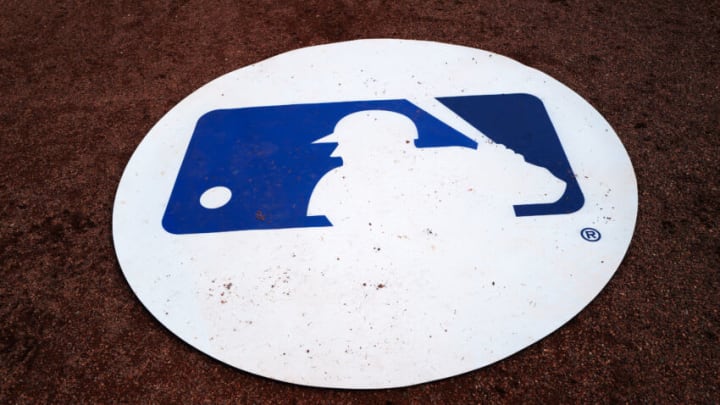There are several women that are not only growing Detroit baseball but baseball across the major leagues.
“Why do women keep having to prove themselves?”
This was a recurring thought I had when I sat down to write a story for International Women’s Day.
It’s not that I don’t want to talk about women in baseball, or that I don’t care about women in sports. In fact, I’ve been a huge proponent of women in baseball from the minute I hit send on my first FanPost four years ago.
Quite honestly, posting that story was the best decision I’ve made, and it’s changed my life in more ways than one.
What it comes down to is that it’s not about women having to “prove” themselves – we already have.
It’s about keeping the narrative about women in baseball a focal point of conversation, not just one month out of the year. It’s about making women writing about baseball, owning baseball teams, or managing teams a theme of normalcy.
Sometimes, people need to be reminded of the incredible impact women from various walks of life have had and continue to have on this sport.
Women have long had a historical influence in baseball dating back to WWII and continue to be trailblazers to this day. According to The Baseball Hall of Fame, the history of women in baseball goes back even further to the 1860’s when Vassar College saw its first women’s baseball team.
The All-American Girls Professional Baseball League (AAGPBL) was developed during WWII starting out as a softball league, that quickly evolved into a full women’s baseball league with tryouts spanning all over North America.
To my surprise, 64 Canadian women were a part of this league, with five of them hailing from Ontario. Dorothy Cook, Gladys Davis and Helen Sandiford all played for the infamous Rockford Peaches. In 1998, all five women were inducted into the Canadian Baseball Hall of Fame.
As a Canadian woman in baseball, I have never been more excited and prouder to read a piece of history knowing that women from Canada–let alone Ontario–played a role in baseball history too.
It’s something you always hear on broadcasts, that “baseball is America’s favourite pastime.” I’ll just leave it at this: Canada would like a word. Heck, my Ukrainian grandmother would also like a word.
Aside from women playing baseball, women have also been influential in front office positions too.
Minnie Forbes was the owner of one of the founding members of the Negro Baseball League, the Detroit Stars. Forbes, a Mississippi native, moved to Grand Rapids, Mi. where she played softball for the Grand Rapids Chicks, an all-Black women’s team, and where she first began working as a secretary for the Grand Rapids Black Sox.
Minnie Forbes owned the Detroit Stars from 1956-1958 and is the last living Negro Leagues team owner.
— Detroit Tigers (@tigers) August 14, 2020
Her contributions are some of the many we celebrate this weekend. pic.twitter.com/1ryVxlsVhT
She lived with her uncle, Ted Rasberry, who was a Negro Leagues player and owner of the Black Sox and Kansas City Monarchs. Rules had it that Rasberry couldn’t own more than two teams, so history was made, and the Detroit Stars were headed by none other than Minnie herself.
Consider Kim Ng, general manager of the Miami Marlins, Nicole Chayet Singer, VP of Communications for the Los Angeles Dodgers and Jaime Viera, Toronto Blue Jays minor-league hitting coach. For the Detroit Tigers on the operations side is Dr. Georgia Giblin, who is the Director of Performance Science. She started working with the Tigers while finishing her research at the University of Michigan.
We're honored to celebrate the women in our organization who make an impact every day.
— Detroit Tigers (@tigers) March 5, 2021
Today, we tell the story of our Director of Performance Science, Georgia Giblin. #WomensHistoryMonth pic.twitter.com/n6sMhX1cN7
It’s become clearer that women shape and hold an important place in baseball and it’s the narrative that baseball needs to keep evolving.
“What’s the point of still writing if it goes unnoticed?” or “Why am I still doing this?” are questions I’ve asked myself more than once.
There have been many instances where I’ve applied for jobs within MLB organizations and was rejected before I could even hit “submit application,” because of one nominal detail: I’m a Canadian citizen.
It’s long been spoken about that MLB wants to grow the game. The only way to grow the game is to expand inclusivity aside from just men, to minorities, women, and people from other countries. You can’t grow the game if you shut out a diverse group of individuals.
We’ve all seen the threads on social media asking users to tag women in baseball, and I can’t help but notice that in some cases, a lot of women get overlooked. Hey, sometimes I don’t even make those lists and that’s okay.
Even though I have a smaller circle than most, I am lucky to have the platform here at Motor City Bengals to help give a voice to the women with smaller followings, the women who feel left out and to the women who continue to dominate in a male-centric sport.
No matter your country or your background, your voice as a woman in baseball matters.
Women in baseball are here to stay.
